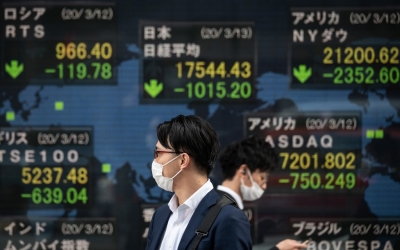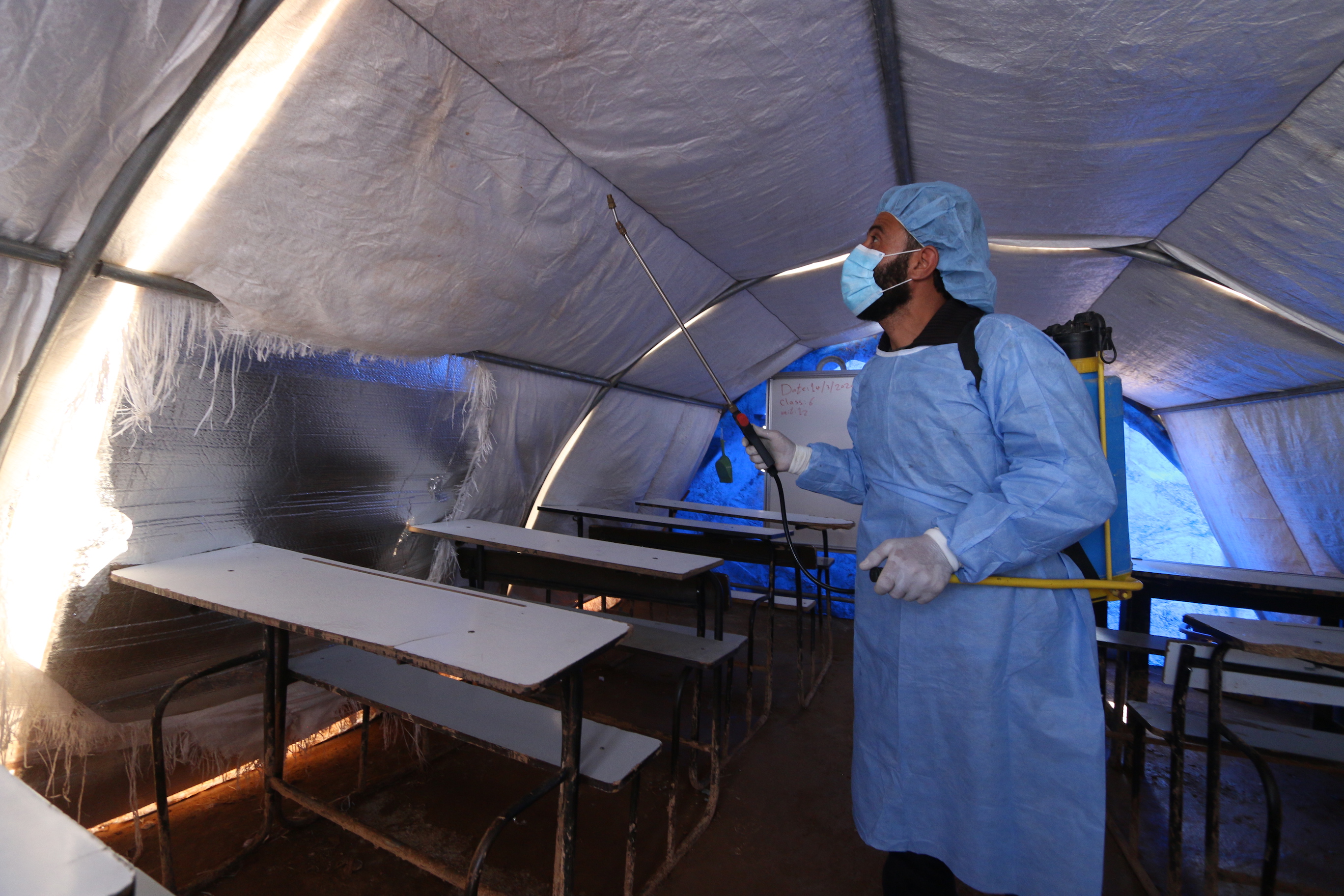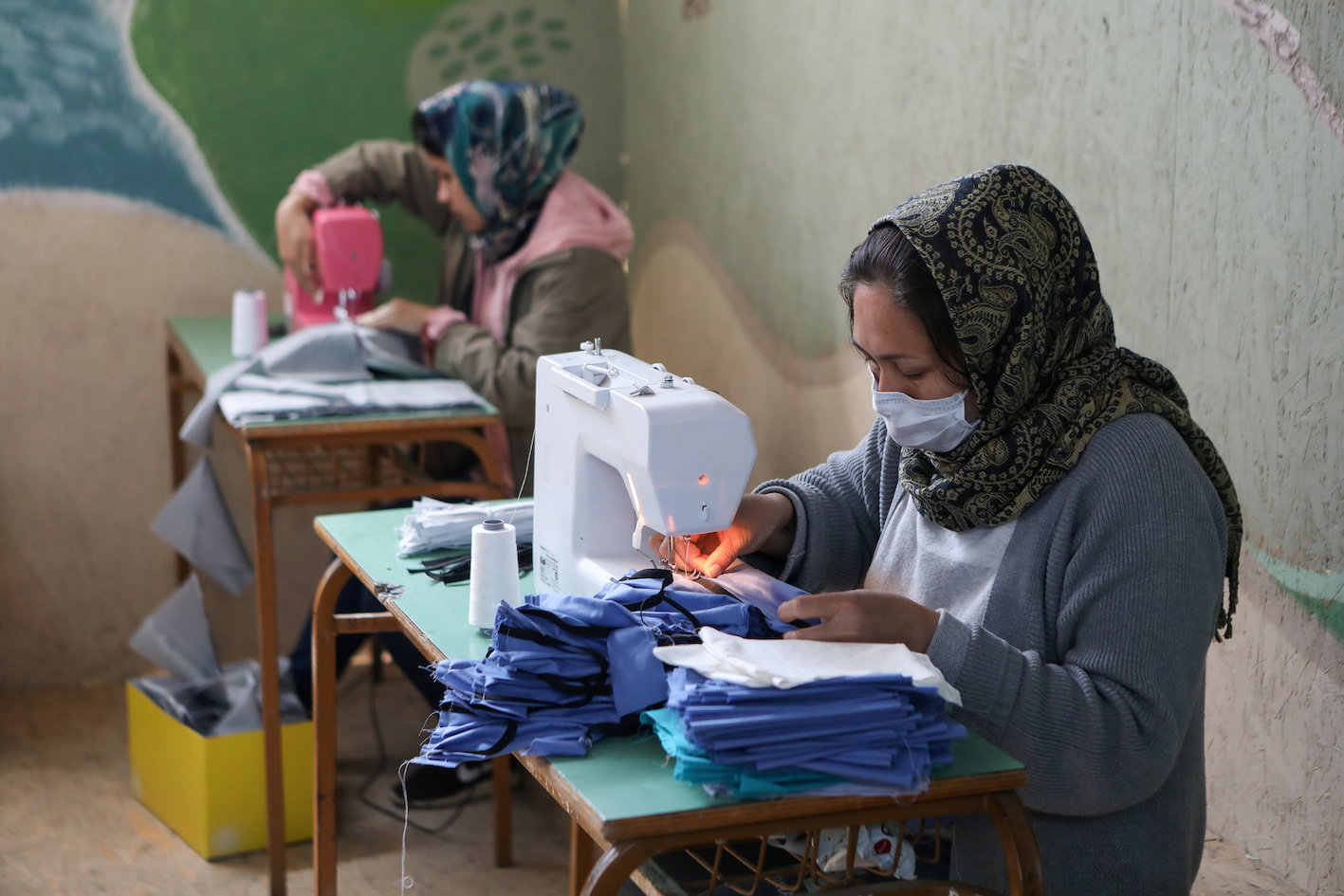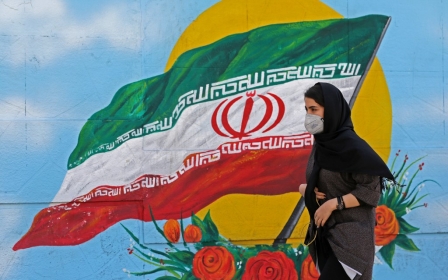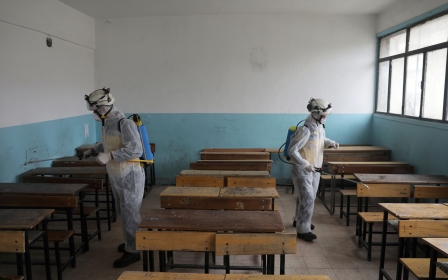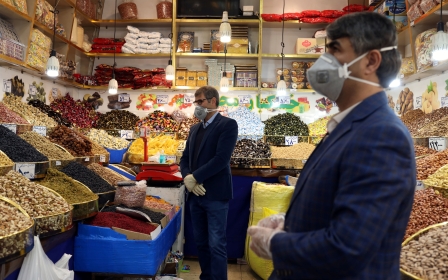No soap nor water: Fear mounts for refugees as coronavirus spreads
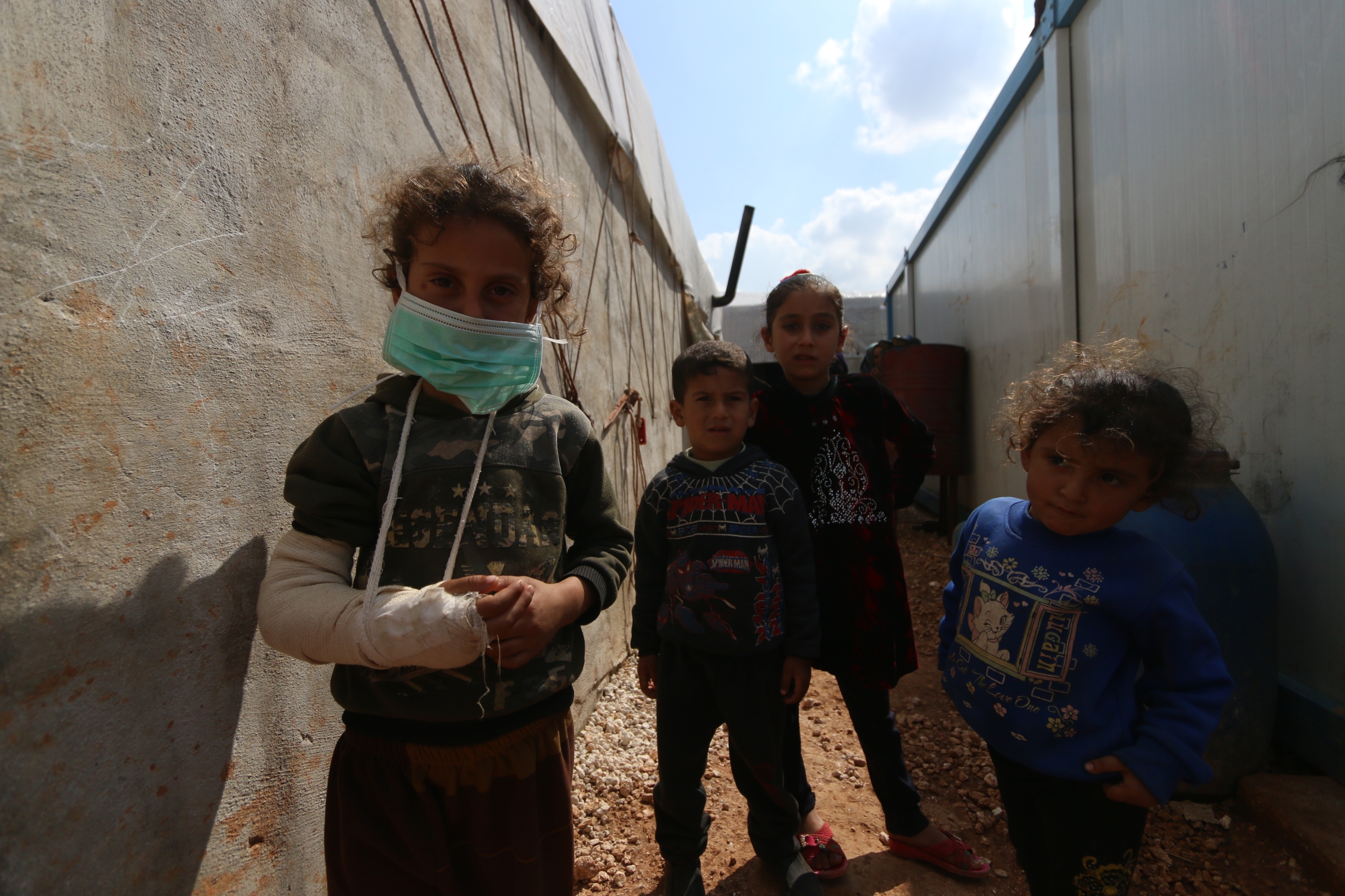
When a team of aid workers entered the Atmeh refugee camp in northern Syria, dressed in blue scrubs and face masks, residents had one question: has the coronavirus finally come to us?
Residents watched aghast as the aid workers, carrying jerrycans full of anti-bacterial spray on their backs, went tent to tent, spraying into the air, hoping to disinfect surfaces that could play host to the COVID-19 virus.
"People were terrified when the sterilisation team appeared out of nowhere," said Ibrahim Rahhal, a father of seven who fled his home because of the war in Syria.
"Many feared the arrival of the coronavirus in the camps and are scared now more than ever before, especially with so many countries taking precautionary measures," he told Middle East Eye.
But as other countries have gone into self-imposed lockdowns, aid workers fear that time is running out for refugees like Rahhal.
Last week, the World Health Organisation (WHO) officially classified COVID-19 as a pandemic, a disease that has spread across the whole world, prompting countries to ramp up their public health measures.
Adam Coutts, a global health specialist at Cambridge University, told MEE that refugees, whether in Syria or elsewhere, are a "highly vulnerable group" - not just to COVID-19, but also to other diseases.
The silent killer
"WHO said all countries should prepare for the coronavirus, but little attention has been given to refugee populations spread across the MENA region and Europe," Coutts said.
"Far more people have died in the region [Middle East] due to lack of access to good quality health care...which is a slow silent killer that rarely gets attention."
Coutts is not alone in his warning. A briefing paper given to several UN agencies, including the International Organisation for Migration (IOM) and the UN Refugee Agency (UNHCR), underlined concerns that refugees are often "neglected" and face "difficulties in accessing health services".
Earlier this month, a confirmed case of the novel coronavirus on the Greek island of Lesbos sparked concerns that an outbreak in the refugee camps there was imminent.
Settlements like the Moria refugee camp in Lesbos, designed to house 3,100 people, now have a population of more than 20,000 men, women, and children.
"People in camps like Moria and Vathy [in Greece] do not have enough water to regularly wash their hands, nor the luxury to isolate themselves," warned Hilde Vochten, a medical coordinator with Doctors Without Borders (MSF) in Greece.
"In areas where there are confirmed cases of COVID-19, people should practice everyday prevention measures like frequent hand washing or staying home in a specific room when sick - measures that are impossible to apply in such a setting."
Vochten told MEE that families of five or six sleep in tents that are three square metres wide, with parts of the Moria camp having only one water tap for 1,300 people.
She also warned that the local health system would not be able to cope with an outbreak in the refugee camps due to the sheer number of refugees in Moria and Vathy camps.
Cramped conditions
The situation in Lesbos is not dissimilar to parts of the Middle East where people continue to be displaced because of conflict.
In northwest Syria, nearly a million people have been displaced since December 2019, as pro-Syrian government forces continue to bomb civilian infrastructure.
Families are scattered across the Idlib province as they continue to flee with only the clothes on their backs, hoping to escape President Bashar al-Assad's bombardment.
The bombing campaign has indiscriminately targeted hospitals and health facilities across Idlib, crippling any chance to properly address a medical emergency like the coronavirus pandemic.
Mohamed, an aid worker with Islamic Relief, said the conditions are ripe for the coronavirus to spread in Syria, describing a desperate situation inside Idlib.
Like Lesbos, many displaced people in Idlib share tents designed to house just five people, but instead they hold up to ten, which will "accelerate infection rates".
"Medication stocks are not enough and there is no proper space to quarantine or treat patients that will contract COVID-19," Mohamed told MEE.
"Intensive care units are already lacking and we have seen an increase in trauma patients who come to the hospital 10 or 20 people at a time depending on the strike. We believe the coronavirus situation will only overburden the system and can prove to be catastrophic."
Not enough medicine
Islamic Relief said it has handed out alcohol rubs to health facilities in Idlib and distributed Ventolin, a medicine that can be used to treat shortness of breath, to help prepare for a potential outbreak, but fears it will not be enough.
The Syrian government has not officially confirmed any COVID-19 cases, but opposition groups remain sceptical - prompting calls to block rebel areas that are close to government-held territory.
UNHCR told MEE that it was closely monitoring the situation and said WHO would be sending a team to test displaced people in Idlib next week.
For now, Rahhal is hopeful that things will calm down and he is grateful that the tents were sterilised inside Atmeh.
"We have faith in the authorities to do the right thing," said Rahhal.
"But this virus will not go away unless people are cautious and educate themselves on how to prevent it from spreading."
- Additional reporting from Yousef Gharibi from Atmeh refugee camp in Syria.
This article is available in French on Middle East Eye French edition.
Middle East Eye propose une couverture et une analyse indépendantes et incomparables du Moyen-Orient, de l’Afrique du Nord et d’autres régions du monde. Pour en savoir plus sur la reprise de ce contenu et les frais qui s’appliquent, veuillez remplir ce formulaire [en anglais]. Pour en savoir plus sur MEE, cliquez ici [en anglais].


